
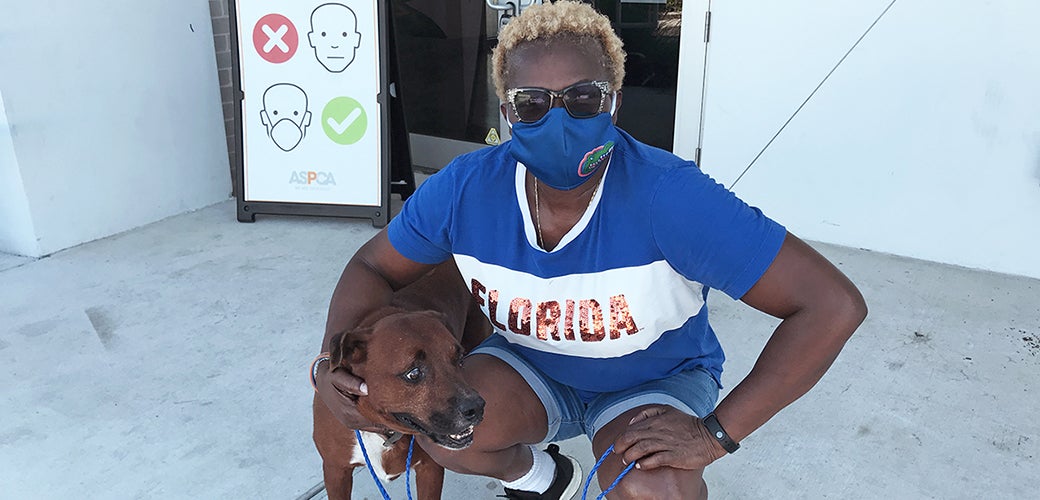
It was a hot June day when Virginia W. noticed that her 10-year-old Shepherd-mix, Benji, was listless and coughing.
“He wasn’t feeling good,” Virginia recalls. “He didn’t look like himself. I knew there was something going on.”
A resident of Liberty City in Miami, Virginia had visited the new ASPCA Community Veterinary Center (CVC) last October—just after it opened—to make sure Benji was up-to-date on his vaccines. At that time, Benji weighed 82 lb. and was deemed healthy, though overweight. Now, eight months later, he had shed 11 lb., and something was off.
Dr. Victoria Koehler diagnosed Benji with heartworm disease, which is most common in warm states and spread by mosquitos. If left untreated, it eventually leads to death.
“Heartworm treatment is sometimes cost-prohibitive for pet owners, with the full cost being upwards of $1,000,” says Dr. Koehler. “I was happy to see the relief wash over Virginia when I told her we would be able to treat his heartworm disease here at the CVC.”

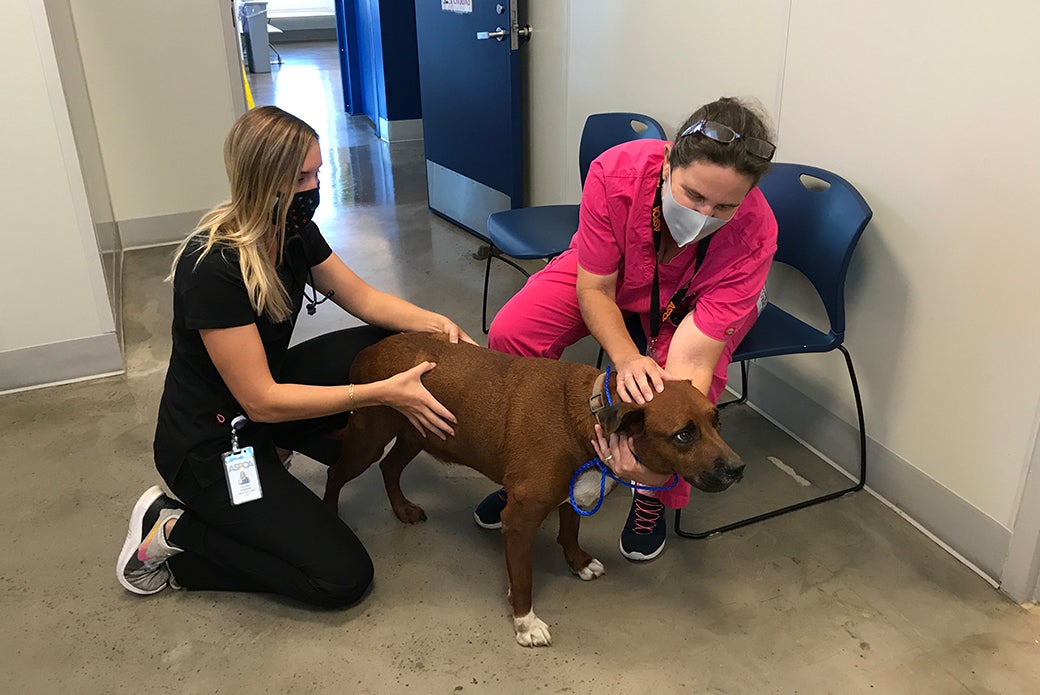
Trekking Through Treatment
Virginia adopted Benji seven years ago from Miami Dade Animal Services (MDAS).
“When I saw him, I just knew,” she tells us. “He looked at me like, ‘I need to be with you.’”

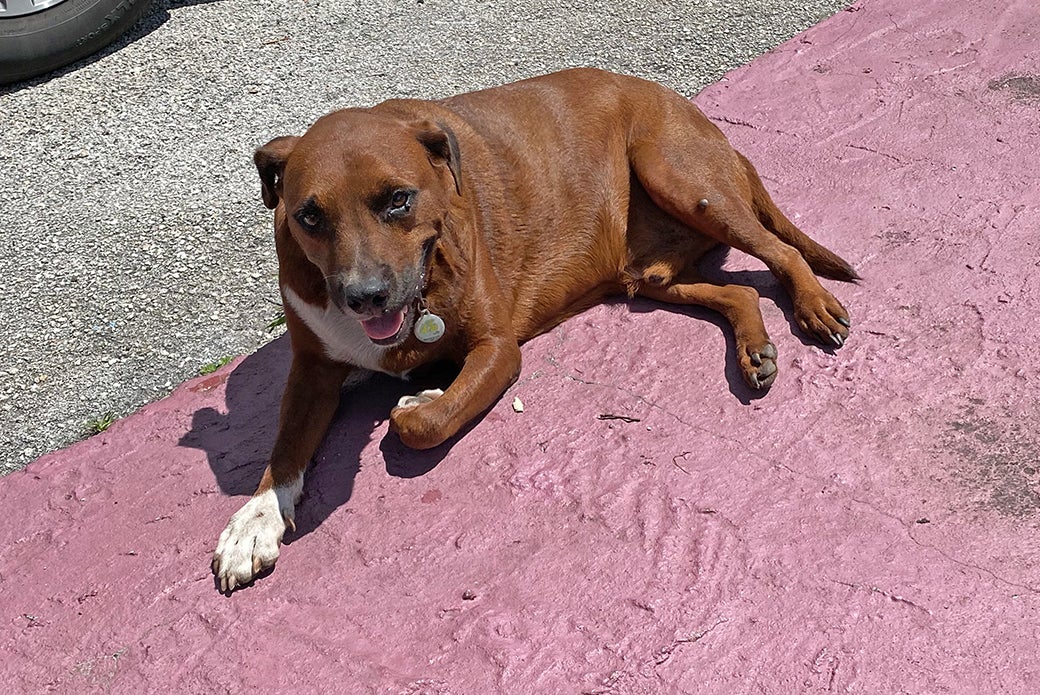
Virginia has since added two more dogs to her household: Jay Jay, a one-year-old large terrier-mix also adopted from MDAS; and Odin, a 10-month-old terrier-mix whom she took in as a stray.
Over the next two months, Dr. Koehler treated Benji for his heartworms with a series of injections and directed Virginia to restrict his exercise.
“The drugs used to treat heartworms contain an arsenic-based compound that kills the adult worms,” explains Dr. Koehler. “Therefore, dogs must reduce their movement during the course of treatment so their bodies can absorb the dead worms without any complications.”
To help keep the typically active Benji, on cage rest, ASPCA Community Engagement Coordinator Cassandra Vazquez and Community Engagement Manager Marlan Roberts provided a crate and bed for Benji to rest apart from his canine housemates.
“They even gave me brand new pillows for Benji so he could be comfortable,” Virginia says. “I’ve never seen a team of people treat a dog with such respect, care and love.”

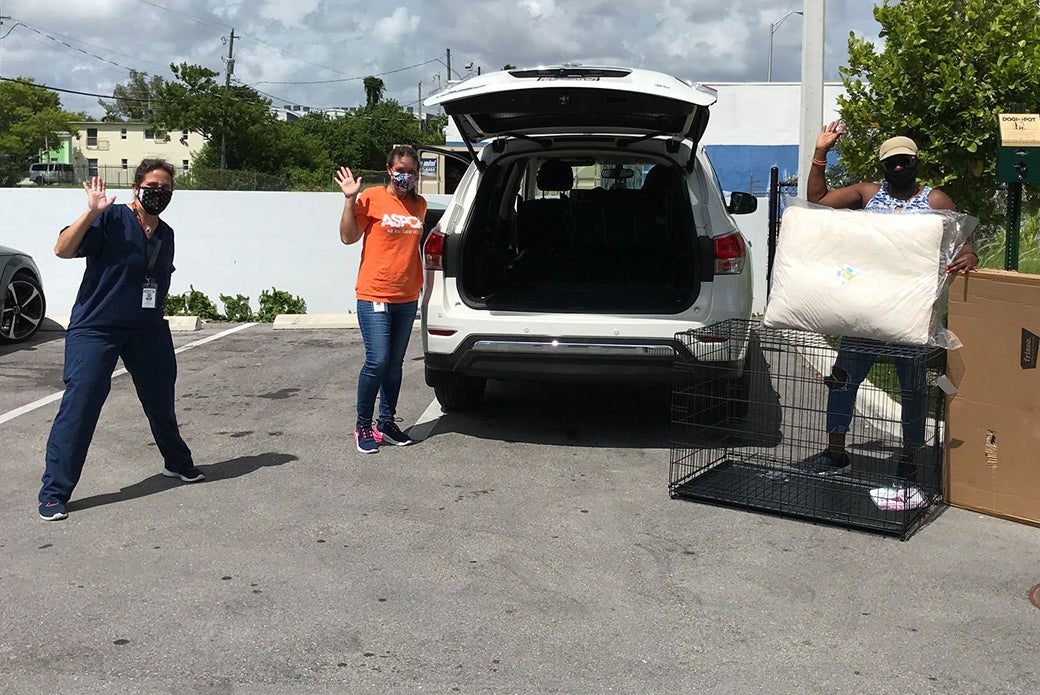
Serving the Under-Served
As the Miami CVC celebrates its first anniversary, we reflect on an incredible year of reaching animals in the local community. Benji is just one of 2,358 pets—1,798 of them dogs—who have been treated at the CVC in Liberty City as of September 30, 2020 for a range of issues, most commonly skin, gastro-intestinal, oral cavity and ear ailments. Forty-five percent of the CVC’s clients have made repeat visits to the clinic.
“This area was long under-resourced and underserved, with little to no access to basic vet care, until we built our clinic,” says David Betournay, Senior Director of the ASPCA Miami Initiative. “And especially during COVID-19, more and more families are struggling to care for their pets.”
While the CVC staff commonly provides vaccines, de-wormers, and flea prevention treatments, during the pandemic they pivoted from preventive to urgent care, according to Sandra Halaby-Soyer, Director of Miami Operations/Community Medicine. “This helped us to prioritize our most critical cases,” she says.
“A lot of people have dogs in Liberty City,” explains Virginia, a school bus driver out of work due to the pandemic. “We’re really struggling right now. I have a mortgage and don’t know when I’m going back to work. I was really stressed when Benji got sick.”

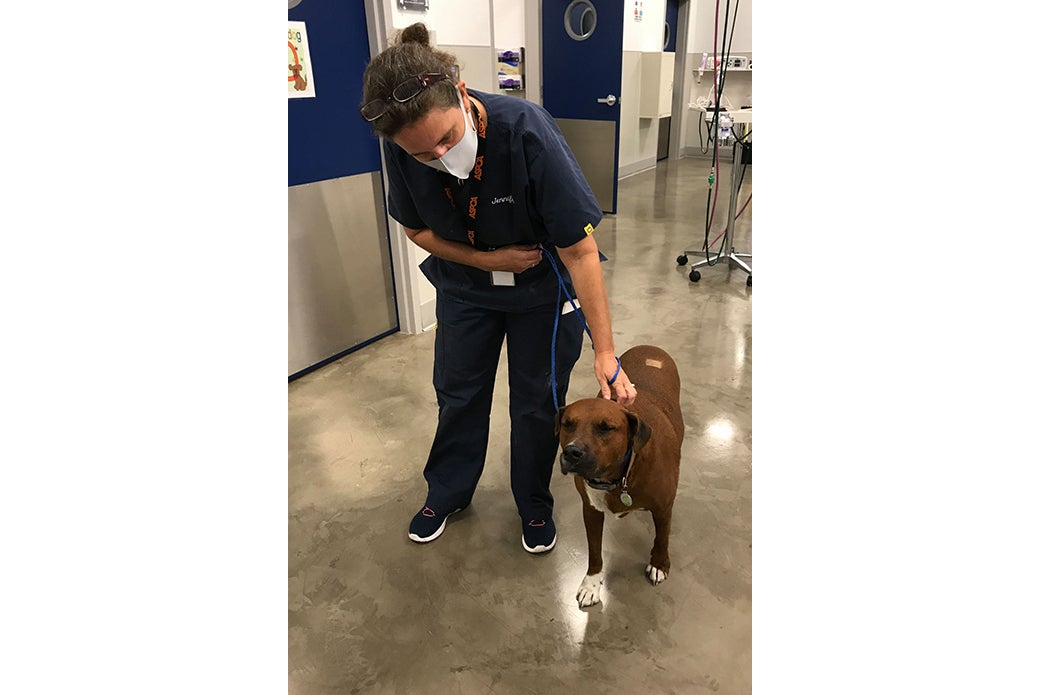
More Recovery Resources
In addition to providing veterinary care during the pandemic, the ASPCA’s Relief & Recovery Initiative distributed free pet food and supplies in cities across the country. In Miami Dade County, 35,255 dogs and cats have received food as of August 21, 2020.
Virginia has been a beneficiary of this service as well, picking up food on multiple occasions for Jay Jay, Odin and Benji, who is now fully recovered and on heartworm preventive medication.
“I’m just so thankful for everything,” says Virginia. “I consider the ASPCA’s presence here a real blessing.”
Source: Read Full Article



